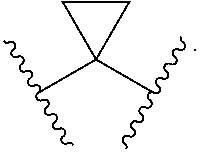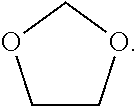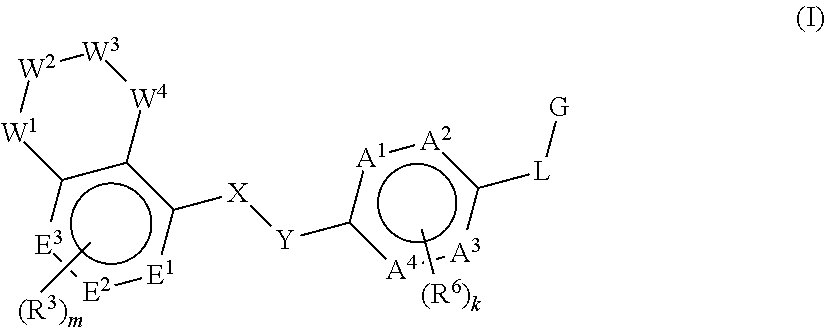Gpr120 receptor agonists and uses thereof
a technology of gpr120 and receptors, applied in the field of gpr120 receptor agonists, can solve the problems of hyperglycemia (abnormally high level of glucose in the blood), patients with high levels of these antibodies develop type i diabetes, and the amount of secreted insulin decreases, so as to stimulate insulin production and reduce blood glucos
- Summary
- Abstract
- Description
- Claims
- Application Information
AI Technical Summary
Benefits of technology
Problems solved by technology
Method used
Image
Examples
example 1
2-(5-((5-chloro-2,2-dimethyl-2,3-dihydrobenzofuran-7-yl)methoxy)-6-fluoro-2,3-dihydro-1H-inden-1-yl)acetic acid (29)
[0872]
[0873]Step A: To a solution of intermediate (5) (0.100 g, 0.43 mmol) in acetonitrile (3 mL) was added intermediate 22 (0.103 g, 0.43 mmol) and cesium carbonate (0.169 g, 0.52 mmol). The resulting suspension was stirred at 75° C. for 5 h. The reaction was cooled to room temperature and filtered through a pad of celite. The filtrate was concentrated in vacuo and the residue was purified by silica gel chromatography (0-20% EtOAc in hexanes) to yield intermediate (28).
[0874]Step B: To a solution of intermediate (28) (0.100 g, 0.231 mmol) in tetrahydrofuran (1 mL) and methanol (1 mL) was added a solution of lithium hydroxide (1.0 M, 1.0 mL). The reaction was stirred at room temperature for 4 h. The mixture was acidified with 1M HCl and diluted with ethyl acetate (5 mL). The organic layer was washed with brine (5 mL), dried over sodium sulfate and filtered. The filtrat...
example 2
3-(4-((2,2-dimethylchroman-8-yl)methoxy)-3,5-difluorophenyl)-2-methylpropanoic acid (31)
[0875]
[0876]Step A: To a solution of intermediate (16) (0.140 g, 0.73 mmol) in tetrahydrofuran (3 mL) was added intermediate 9 (0.178 g, 0.73 mmol), polymer supported triphenylphosphine (3 mmol / g, 0.36 g, 1.1 mmol) and diisopropylazodicarboxylate (0.214 mL, 1.1 mmol). The resulting suspension was stirred for 18 h. The reaction was diluted with ethyl acetate and filtered through a pad of celite. The filtrate was concentrated in vacuo and the residual was purified by silica gel chromatography (0-20% EtOAc in hexanes) to yield the intermediate (30).
[0877]Step B: To a solution of intermediate (30) (0.100 g, 0.256 mmol) in tetrahydrofuran (1 mL) and methanol (1 mL) was added a solution of lithium hydroxide (1.0 M, 1.0 mL). The reaction was stirred at room temperature for 4 h. The mixture was acidified with 1M HCl and diluted with ethyl acetate (5 mL). The organic layer was washed with brine (5 mL), dr...
example 3
3-(4-((2,3-dihydrobenzofuran-7-yl)methoxy)-3,5-difluorophenyl)-2-methylpropanoic acid (32)
[0879]
[0880]1H NMR (400 MHz, CDCl3) δ: 7.21-7.16 (m, 2H), 6.83 (t, 1H), 6.70 (d, 2H), 5.13 (s, 2H), 4.57 (t, 2H), 3.21 (t, 2H), 2.99-2.94 (m, 1H), 2.74-2.69 (m, 1H), 2.62-2.56 (m, 1H), 1.19 (d, 3H).
PUM
| Property | Measurement | Unit |
|---|---|---|
| Fraction | aaaaa | aaaaa |
| Fraction | aaaaa | aaaaa |
| Fraction | aaaaa | aaaaa |
Abstract
Description
Claims
Application Information
 Login to View More
Login to View More - R&D
- Intellectual Property
- Life Sciences
- Materials
- Tech Scout
- Unparalleled Data Quality
- Higher Quality Content
- 60% Fewer Hallucinations
Browse by: Latest US Patents, China's latest patents, Technical Efficacy Thesaurus, Application Domain, Technology Topic, Popular Technical Reports.
© 2025 PatSnap. All rights reserved.Legal|Privacy policy|Modern Slavery Act Transparency Statement|Sitemap|About US| Contact US: help@patsnap.com



